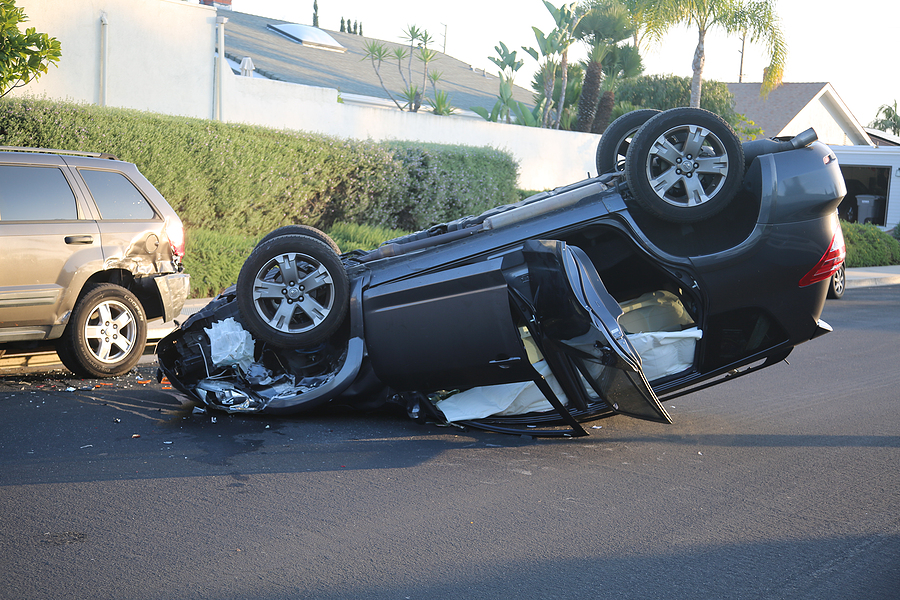Refusing a Breathalyzer: A Complicated Legal Issue
A charge of driving under the influence (DUI) or driving while ability impaired (DWAI) can have serious consequences. These consequences can potentially last a lifetime, but if you’re lucky, the State won’t be able to prove its case. This leaves many people asking whether they can refuse a breathalyzer in Colorado Springs — and if there are consequences for doing so.
In the realm of human rights, authorities can’t typically make you do something you don’t want to do. This is at least true if you’re not incarcerated. However, refusing a breathalyzer will have serious consequences due to Colorado express consent laws. This is an agreement that licensed drivers make with the state — oftentimes without realizing it.
In some cases, the consequences of a breathalyzer refusal can be just as bad as a DUI conviction. That’s why it’s critical for you to understand your rights.
What Is Express Consent in Colorado?
When a person becomes a licensed driver in Colorado, they agree to certain terms and conditions. One of these conditions is that they’ll agree to chemical tests if police suspect them of a drunk or drugged driving offense. By accepting the license — and thus the privilege to drive in the state — the driver agrees to this requirement.
If police suspect that a person is driving while impaired by alcohol, a breathalyzer can typically be conducted at the scene. This provides immediate results. If a person’s blood alcohol content (BAC) is at or above 0.08%, they’re considered drunk under the law. If police believe a person is impaired due to drug use, a blood test will be required.
Unfortunately, those who face arrest for DWAI linked to drug use may have to wait weeks for the results of their test. Of course, you cannot be forced to take either of these tests. The State typically has to get a warrant to make a person take a chemical test. However, it’s the consequences of refusal that a person needs to worry about.
Consequences of Refusing a Breathalyzer
When a person is convicted of DUI or DWAI in Colorado Springs, they could lose their license, face alcohol education requirements, be required to install an ignition interlock device (IID), and a variety of other negative outcomes. While this might seem like a great reason to refuse a breathalyzer, consider the potential repercussions of doing so:
- Immediate suspension of the driver’s license. This suspension lasts for one year
- Designation as a persistent drunk driver (PDD). This means
- An alcohol and drug treatment and education program is required
- An ignition interlock device will be mandated for at least one year
- Expensive SR-22 insurance must be purchased, even if not convicted of impaired driving
- Refusal can be used as evidence of guilt in court
These consequences are simply for a first-time refusal. If you’re accused of refusing a breathalyzer in Colorado Springs during subsequent stops, the repercussions of violating express consent laws are even more consequential. You could literally have your license suspended for three years — even if you’re never convicted of impaired driving.
Because of this, it’s critical to fully consider whether refusing a chemical test is in your best interest. However, it’s also important to understand your rights and options if you’re already accused of doing so.
What Are Your Options for a License?
When arrested for DUI or DWAI, it’s important that you quickly start working on a criminal defense. For many, this is typically done with the assistance of an experienced defense attorney. However, the outcome of your criminal trial may not affect whether your license is suspended — particularly if you refused a breathalyzer after being pulled over.
So, what are your options once your license is suspended? First, it’s important to understand that police will usually provide a 7-day driving permit. This is done when your license is confiscated. You must request an administrative hearing during this time. At the hearing, you can contest your administrative suspension.
Unfortunately, you may not be successful in this endeavor. However, it is still possible to secure a restricted license. Your attorney can file the paperwork to get the ball rolling, but it typically requires you to take a drug-alcohol education program and have an IID installed on your vehicle. While this may seem tedious, your ability to drive is likely worth it.
Potential Defense Strategies
Many people plead guilty or no contest to DUI and breathalyzer refusal charges. This is because they often assume that they’ve been “caught red-handed.” In reality, there are several potential defenses when facing such charges. They include:
- Challenging the stop: Police officers must have probable cause to initiate a traffic stop. If they don’t, any evidence they obtain — including the breathalyzer refusal — may be inadmissible in court
- Procedural failure: Officers must follow strict guidelines during a traffic stop. This is particularly true when conducting field sobriety tests, but they must also abide by certain rules when requesting a breathalyzer test. Deviations can be challenged in court
- Administrative hearing: Regardless of the outcome of your criminal case, you can contest your license revocation with the Department of Revenue
These are the most common defenses that prove successful in court. Yes, anyone can refuse a breathalyzer in Colorado Springs – but they should be prepared for the consequences of doing so. An attorney may be able to assist in your defense, so you don’t have to take on the state alone.
Asserting Your Rights When Accused of Impaired Driving
If you’re accused of DUI/DWAI, it might seem like a great idea to refuse a chemical test. However, understanding that this has consequences is critical. Once you find yourself in this situation, securing a positive outcome is contingent on understanding your rights. A DUI lawyer can assist in this task.
An experienced attorney can help you fight against impaired driving charges and administrative license suspensions. There may be an uphill battle ahead of you, and in some cases, compromise will result in the best outcome. However, you should never make any major decisions prior to speaking with an attorney.
At Lux Law Firm, we can help you understand your rights when you refuse a breathalyzer in Colorado Springs. Contact us at 719-451-7469 to schedule your free case evaluation.





